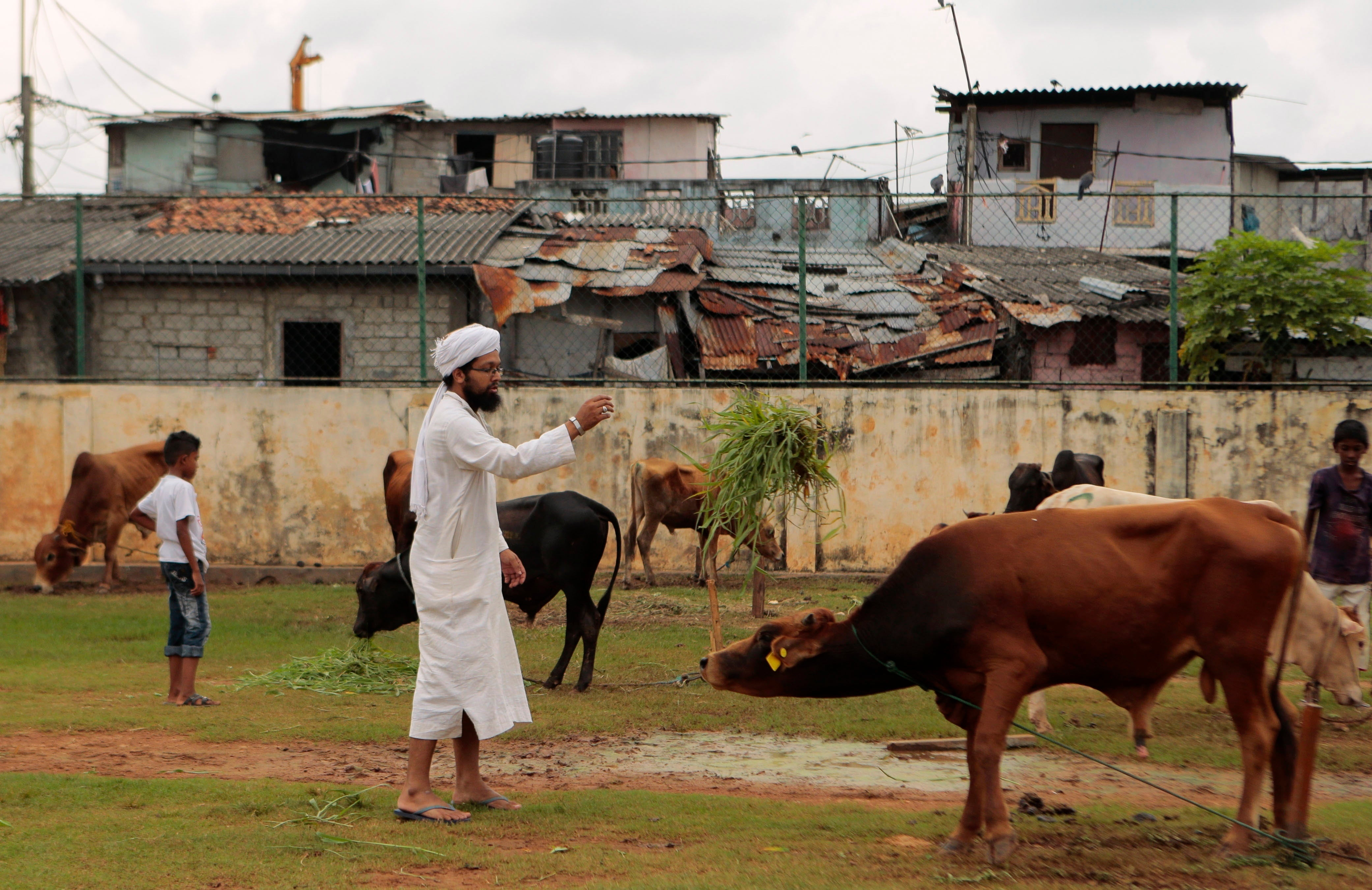Sri Lanka government decides to ban cattle slaughter
Sri Lanka’s government says it will ban cattle slaughter, saying it will help the dairy industry and thereby save money used to purchase imported milk powder

Your support helps us to tell the story
From reproductive rights to climate change to Big Tech, The Independent is on the ground when the story is developing. Whether it's investigating the financials of Elon Musk's pro-Trump PAC or producing our latest documentary, 'The A Word', which shines a light on the American women fighting for reproductive rights, we know how important it is to parse out the facts from the messaging.
At such a critical moment in US history, we need reporters on the ground. Your donation allows us to keep sending journalists to speak to both sides of the story.
The Independent is trusted by Americans across the entire political spectrum. And unlike many other quality news outlets, we choose not to lock Americans out of our reporting and analysis with paywalls. We believe quality journalism should be available to everyone, paid for by those who can afford it.
Your support makes all the difference.Sri Lanka's government announced Tuesday that it will ban cattle slaughter, saying it would help the dairy industry and thereby save money used to purchase imported milk powder.
But an analyst said the decision was politically motivated to please the Buddhist majority and would harm dairy farmers.
Cabinet ministers decided at a meeting Monday to immediately amend the Animal Act, the Cattle Slaughter Ordinance and other laws and regulations passed by local authorities regarding cattle slaughter, the government's information department said.
It said the Cabinet believed that an increase in cattle slaughter was making it hard for traditional farmers to acquire cows for dairy farming.
Independent political analyst Kusal Perera called the decision “totally counter-productive” because “no milk industry can sustain itself without a beef industry.”
He said the move is “more a political decision than an economic one” to please the majority Sinhala Buddhist constituency.
Buddhists as well as minority Hindus avoid beef for religious and cultural reasons. Some Buddhist monks and allied groups have long sought a ban on cattle slaughter.
Perera said dairy farming in Sri Lanka is mostly a cottage industry in which individual farmers also raise cattle for side income. Such farmers will have difficulty if they are denied the opportunity to slaughter and sell unproductive, aging cattle.
The Cabinet said it will implement a suitable program for aging cattle that can no longer be used effectively for agricultural purposes, but didn’t describe the program.
It also said the government will import beef and provide it at a concessionary price to people who consume it since it will not be produced domestically.
According to government statistics, domestic milk production accounts for 45% of total demand, resulting in imports of $270 million of milk powder in 2018. The country produced over 29,000 tons of beef in 2019, up 1,000 tons from 2018.
Perera said the slaughter ban will particularly target Muslim traders who have a monopoly on the beef trade, “but they will shift to other businesses such as poultry and mutton.”
Buddhists account for more than 70% of the country’s 20 million people. Ethnic minority Tamils, who are mainly Hindus, comprise about 15% of the population, while 9% are Muslims.